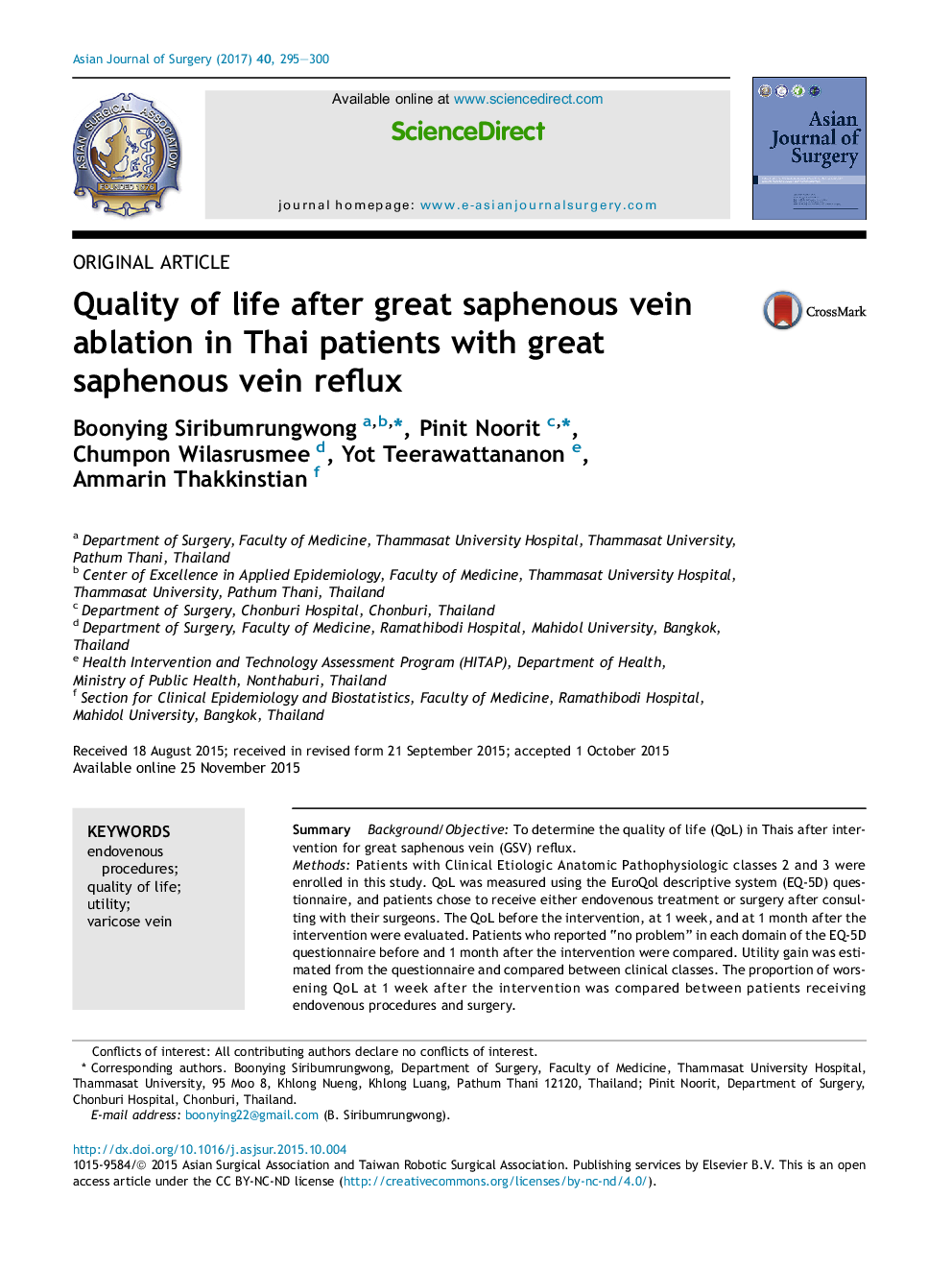| Article ID | Journal | Published Year | Pages | File Type |
|---|---|---|---|---|
| 5731522 | Asian Journal of Surgery | 2017 | 6 Pages |
SummaryBackground/ObjectiveTo determine the quality of life (QoL) in Thais after intervention for great saphenous vein (GSV) reflux.MethodsPatients with Clinical Etiologic Anatomic Pathophysiologic classes 2 and 3 were enrolled in this study. QoL was measured using the EuroQol descriptive system (EQ-5D) questionnaire, and patients chose to receive either endovenous treatment or surgery after consulting with their surgeons. The QoL before the intervention, at 1 week, and at 1 month after the intervention were evaluated. Patients who reported “no problem” in each domain of the EQ-5D questionnaire before and 1 month after the intervention were compared. Utility gain was estimated from the questionnaire and compared between clinical classes. The proportion of worsening QoL at 1 week after the intervention was compared between patients receiving endovenous procedures and surgery.ResultsA total of 83 patients-56 received endovenous procedures [23 received ultrasound-guided foam sclerotherapy (UGFS) and 33 received radiofrequency ablation (RFA)] and 27 received surgery-were enrolled. QoLs were significantly better in all domains after the intervention: pain/discomfort (58%), mobility (42%), anxiety/depression (38%), usual activities (19%), and self-care (9%). Utility gain was 0.255 (95% confidence interval: 0.197-0.313) and higher in class 3. At 1 week after the intervention, surgery had significantly higher patients with worse mobility scores. Among endovenous procedures, UGFS had higher patients with worse pain/discomfort scores than RFA at 1 week after the intervention (16% vs. 0%, p = 0.025).ConclusionGSV ablation for GSV reflux in Thai patients with CEAP C2 and C3 categories significantly improves both physical and mental QoL; patients who received endovenous procedures were found to have better early physical QoL.
